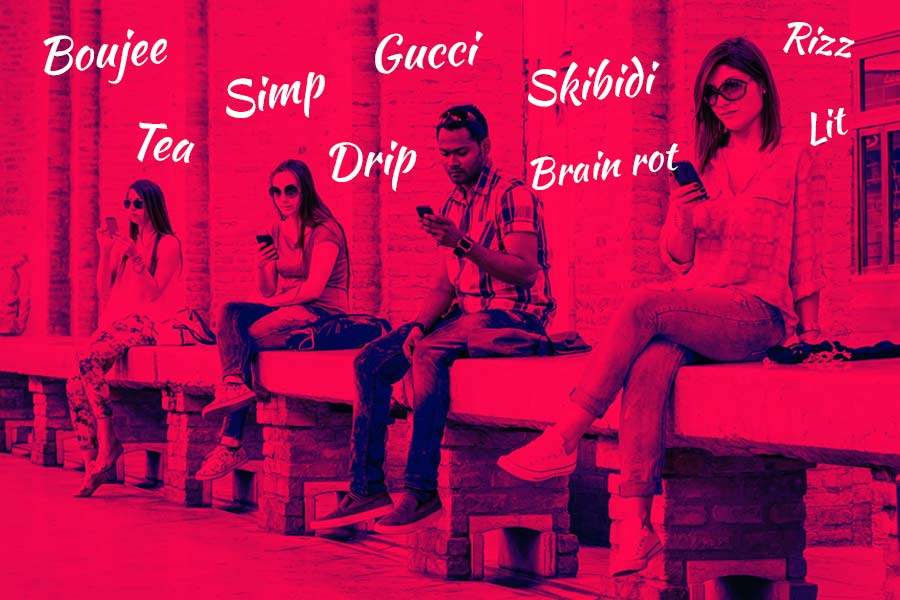 Wednesday, 20 November 2024
Wednesday, 20 November 2024
 Wednesday, 20 November 2024
Wednesday, 20 November 2024
On November 16, India’s designated National Press Day, the Washington Post Press Freedom Partnership highlighted yet another attack on the journalist Rana Ayyub.
“November 16 is National Press Day in India, a day meant to recognize the critical role of a free and independent press in the world's largest democracy. Yet, the escalated targeting of Washington Post opinion contributor Rana Ayyub — through the leaking of her personal information including her government issued identity documents, her phone number, intrusive surveillance, and creation of Al generated sexual content exploiting her likeness — underscores the deteriorating state of press freedom in India,” the post said.
The partnership describes itself as “a public service initiative from The Washington Post to support and defend journalists, journalism, and press freedom at a time when global democracy is in crisis.”
The post added: “Journalists must be able to report without fear of intimidation and harassment. We urge the Indian government to ensure the safety and protection of Rana and all journalists.”
Ayyub is no stranger to harassment for doing her job. Known for her book, Gujarat Files, based on reportage investigating the 2002 communal riots, her work has often made her a target of attacks aimed at silencing her voice.
The latest attack on her began when a right-wing account on X (Twitter before Elon Musk took over) doxxed her – that means revealing personal information about someone online without their consent – by publicising her personal phone number.
What followed was a nightmare even for Ayyub, who has earlier described how Enforcement Directorate officials grilled her over things like a Rs 100 bill on Swiggy and how she had got used to government notices coming in brown envelopes via Speed Post.
Ayyub received over 200 abusive calls and messages on a single night.
“About five, six days ago, I had multiple court hearings that day and I had come home after that, my niece woke me up at 1:30am at night, that my phone was buzzing,” Ayyub recounted to The Telegraph Online.
“She woke me up so suddenly in the night and I noticed that there were calls after calls and then there were video calls at the same time and there were messages with OTPs – around 200-300 in one go, of which I have lost count. I just picked up one call randomly and the person on the call started abusing me with sexually abusive words, and then it went on and on.
“Somebody then messaged me that you have been doxxed by this handle called HPhobiaWatch on Twitter,” Ayyub said. “I went on to check this handle and found that it had tweeted ‘please send horror movie recommendations on this number’.”
Despite filing complaints with police there has been little progress, she said, leaving her vulnerable to continued harassment.
“The comments on the post said: we have woken her up, what kind of services can we ask her for, she’s not picking up her call and so on, will she give service at 2, and all that kind of stuff. I switched off my phone. I couldn’t sleep after that, and I switched it on again. There were more calls.
“These people had entered my number everywhere, so I filed an FIR with the Navi Mumbai police.” Ayyub said.
According to her, there was no respite even after lodging complaints.
“These guys on social media went one step ahead and said that aunty you don’t even have proof against us and you don’t even have a link to what we did and then they started posting my passport scans, my bills and they posted my Gmail account password, which has been my password for the last eight years.
“I have no idea how they have my password,” she said. “This is something that the investigating agencies need to answer. How did they get my password?”
This is not an exception. Ayyub has been a target for a long time for her stance against the ruling dispensation. The feisty journalist has been a victim of this in the early days of her career as well. She said that her family has also been targeted.
Complaints filed with the police went nowhere.
“In the past a picture of my nephew was also posted and his image was morphed with Osama bin Laden, he is just in school, I complained against it and nothing has happened,” Ayyub said.
“My 13-year-old niece’s picture was downloaded from her Instagram account and she was slut-shamed. I filed a case with the Delhi police but nothing happened. I gave a statement in front of the Delhi police magistrate, they closed the case in two years and nothing happened,” she said.
Ayyub’s harrowing experiences sheds light on the systemic failure to protect journalists in India.
“I’ve spent more time in police stations than writing my reports in the last week,” she said. “They have violated my modesty, my privacy, and my freedom of press.
“Then they also said, anybody who wants to watch Rana this is her live sex cam, this is her registration number. They also posted my address and said ‘uske address par jake usse demand karo’ [go to her address and demand from her]. This HPhobiaWatch kept on posting things about me, they posted a video of me stating of me being arrested by UP STF, but that day it was actually me going to the police station to file a statement. They also put a Photoshopped tweet which had me tweeting that I hate India and Indians, which went viral.
“A handle posted a morphed AI video of mine in a porn context,” she said.
The online platform X hasn’t been helpful either, she said.
“I wrote to Twitter, that they have violated my privacy, they did not do anything about it, I have written to Navi Mumbai police multiple times. I forwarded them the details of the person who runs HPhobiaWatch, but still they have not done anything and it’s almost a week. They have not been able to make a single arrest or get any of the content down,” she said.
The harassment Ayyub has been facing goes beyond digital abuse.
She said she was followed and interrogated by “intelligence personnel” under the guise of “ensuring her safety” in Manipur, where she was on assignment.
“I don’t care which political party these people are from, whether Congress or the BJP, I just believe that they have violated my modesty. This morning somebody texted me saying ‘tere bare main kuch masala mila hai,’ [got some dope on you]. This is the worst thing you can do to a woman journalist, to shame her into silence,” she said.
“How does a journalist report? I am either busy fighting court cases, or watching a lynch mob against me, people are asking on Twitter, ‘tera kya rate hai’ [what is your rate]. This is how a journalist is silenced,” she said.
Even going to the police has been traumatising.
“To show my morphed nude pictures to a police officer is a mentally stressing in itself, it is triggering at so many levels,” she said. “I have been taking anti-anxiety pills because, what to do? The government is not helping.
“The irony,” she adds, “is that the Maharashtra elections are being called on this Ladki Bahin Yojana but what happens when a woman’s rights are being violated everyday, especially a woman journalist? Don’t say you are here to protect women when you do not do anything for them.
“If it can happen to me, it can happen to anyone,” she stressed.
Last year, The Telegraph’s editor-at-large R. Rajagopal had reported what Ayyub had recalled at an event.
“... The ED interrogated me for 13 hours [in a case alleging diversion of charity funds],” she had said. “My bank account statements were put in front of me.”
She was asked about “one entry which was recurring.” “Why do you pay Rs 5,000 every two weeks? She [possibly the ED officer] marked it in red. So, I said: ‘Ma’am, that is my psychiatrist. If you were a journalist in India, you would also need one’.”







